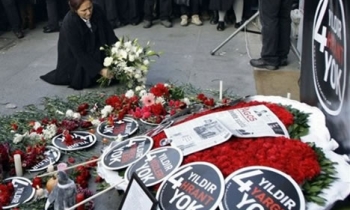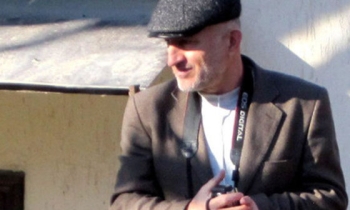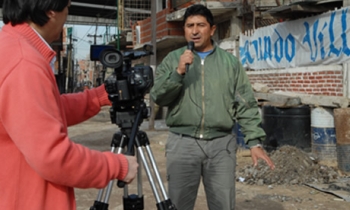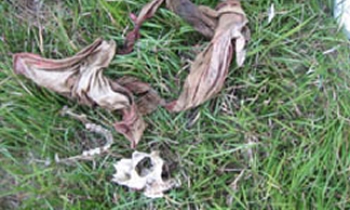(AFP) — Mushtaq Yusufzai has been wounded by the Taliban, arrested by Pakistani forces and his mother has begged him to quit -- but still he keeps reporting from the frontline of the "war on terror".
The 32-year-old specialist on Pakistan's wild tribal belt is the winner of the Kate Webb award, set up by Agence France-Presse (AFP) to honour the life and career of the legendary foreign correspondent who died in November 2007.
Yusufzai, from Mardan in Pakistan's North West Frontier Province, began his journalism career nine years ago as a health reporter on the News, a leading English language-daily, for which he still works.
But his professional life was transformed by the September 11, 2001 attacks on the United States and the subsequent US-led ousting of the hardline Taliban regime in Afghanistan.
"I was always interested in reporting on Pakistan's tribal areas because I found them to be the most challenging," Yusufzai told AFP.
US channel ABC news hired him as a fixer, and in early 2002 he was posted near Afghanistan's Tora Bora cave complex when it was bombed by US forces who suspected it was the lair of Al-Qaeda leader Osama bin Laden.
Since then he has roved the tribal belt, including mountainous Waziristan, the scene of the fiercest fighting between Pakistani troops and militants who fled Afghanistan after the September 11 attacks.
He has also reported for the US network NBC from the tribal belt since 2004.
The son of a farmer, Yusufzai is an ethnic Pashtun like the people of the tribal regions, giving him an insight into the fiercely independent clans that effectively self-govern the northwestern border with Afghanistan.
But that very access has often placed the married father of two young boys in danger.
"I have come face to face with militants and aggressive security forces several times while reporting from the ground in the tribal regions," Yusufzai said.
In 2005, he was in a convoy of pro-government tribal forces ambushed as it searched for supporters of Abu Farj al-Libbi, Al-Qaeda's then-third in command who had just been arrested.
"The jeep I was in was badly damaged and I suffered minor injuries. We were surrounded by Taliban and under intense fire.
"I thought that my time had come and I would not return alive from here. Despite that I continued filming the clash. Finally the Taliban were forced to retreat," he said.
"My mother asked me afterwards to quit and said she would never forgive me if I carried on. But I just couldn't keep myself away from reporting these events," he said.
On another occasion he was arrested by security forces while reporting an army assault in South Waziristan. He was released after they took his camera images.
"On my way back I got a message through a tribal friend that Taliban wanted to meet me. As we headed toward the Taliban area the army sent two helicopter gunships warning me from the air to leave the area immediately."
The 5,000-euro (nearly 8,000-dollar) bursary that comes with the Kate Webb prize gives the winner a chance to work on an assignment they may not be able to afford otherwise.
Yusufzai said he now wants to travel to the United States and Britain to investigate reports that groups in the West are sending converts to Islam into the tribal areas.
"I would never be able to do it on my own and I am grateful to AFP," he said. "I would like to use this opportunity to fulfil my dream to investigate this complex story."
Another dream -- visit the Guantanamo Bay complex where the United States has interned some of its highest-prized detainees in its "war on terror."
Because, he said, "people who have been released from Guantanamo and their tales are a source of inspiration for young people here to train for suicide attacks against foreigners and those who collaborate with them."









